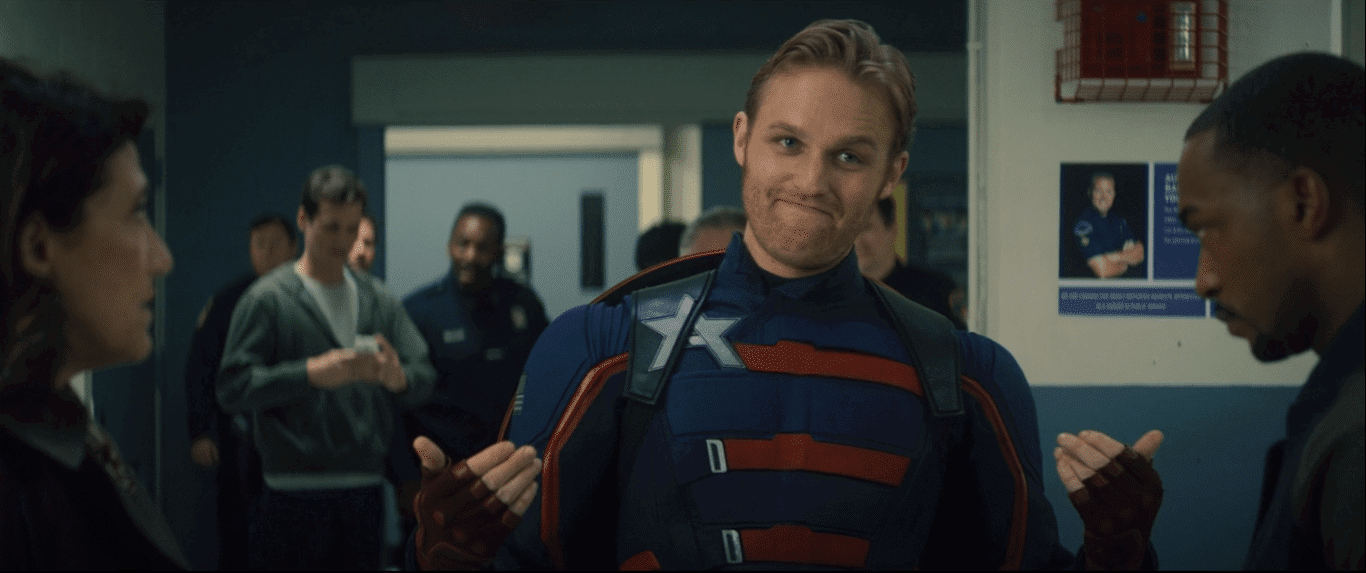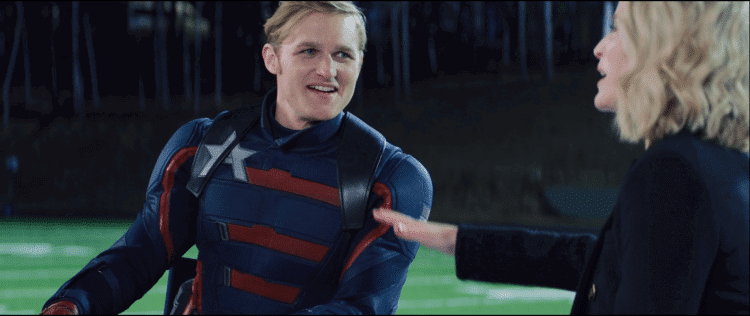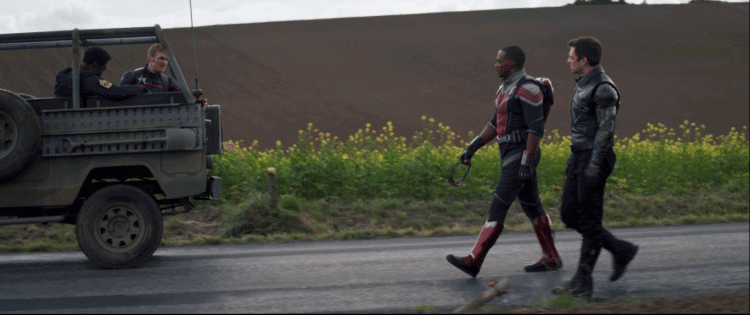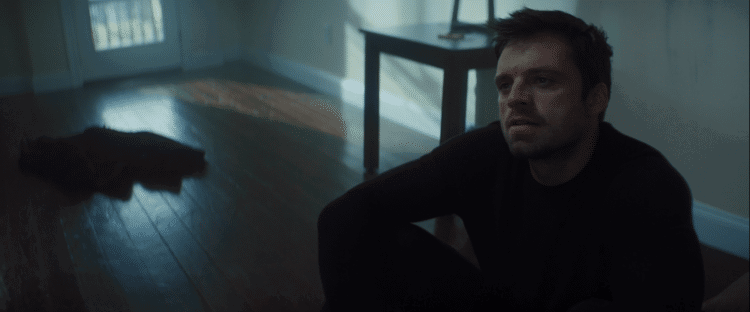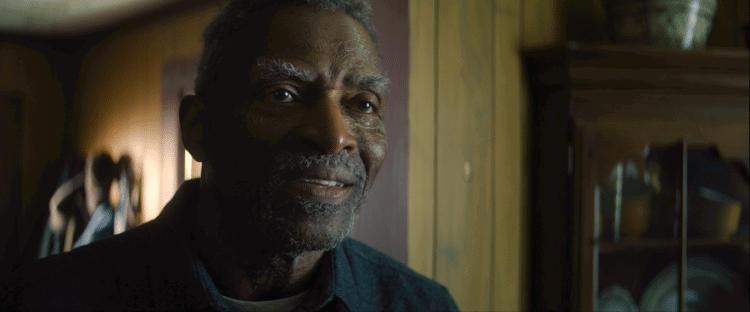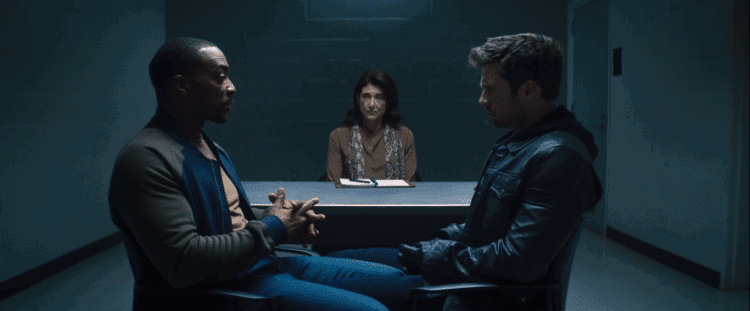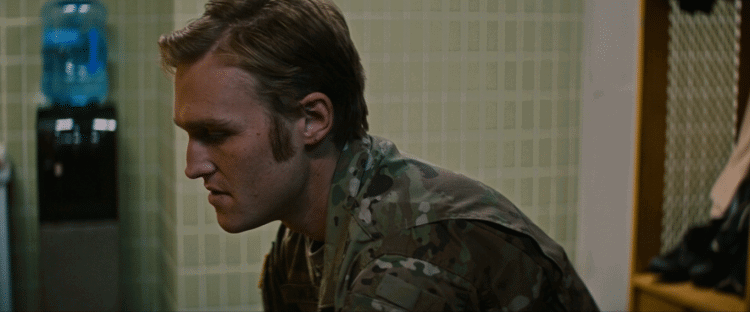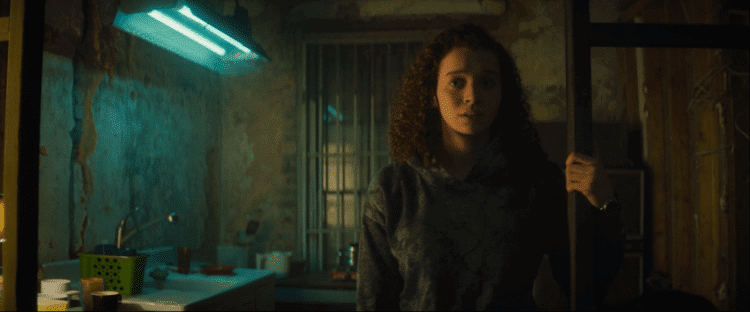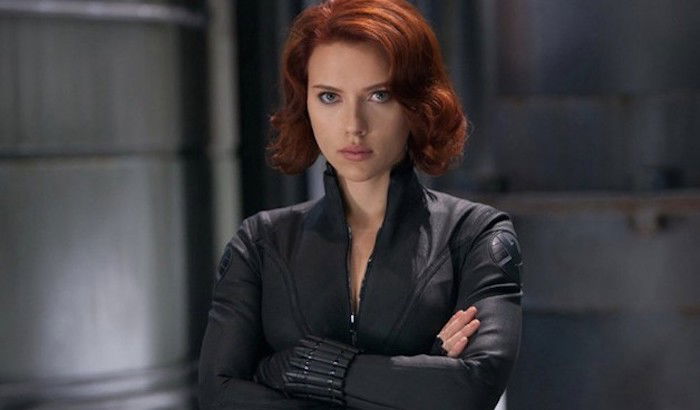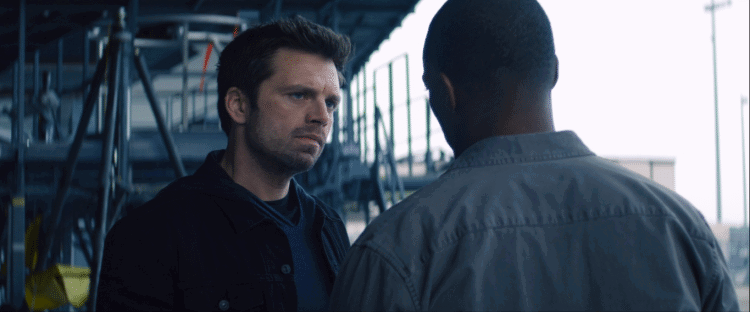Did someone hand Kevin Feige a philosophy book? Marvel has become obsessed with the metaphysical question of identity lately! First, Vision asked us to consider the Ship of Theseus paradox, and now John Walker’s Captain America wants us to believe he’s the genuine article. Marvel is getting deep, and its stories are better for it.
“Star-Spangled Man,” the second episode of Disney+’s Falcon and the Winter Soldier, extrapolates on the pilot’s big idea – What makes someone Captain America? – in surprising ways. John Walker’s Captain America is more than just a detestable antagonist undeserving of Cap’s shield, and his impressive credentials and talents invite viewers to dive deeper into their understanding of the values required to carry Steve Rogers’ legacy. Fantastic character writing, particularly in the case of Walker and Bucky Barnes, and continued commitment to intelligent commentary on systemic racism make “Star-Spangled Man” the best episode of Marvel’s television offerings to date.
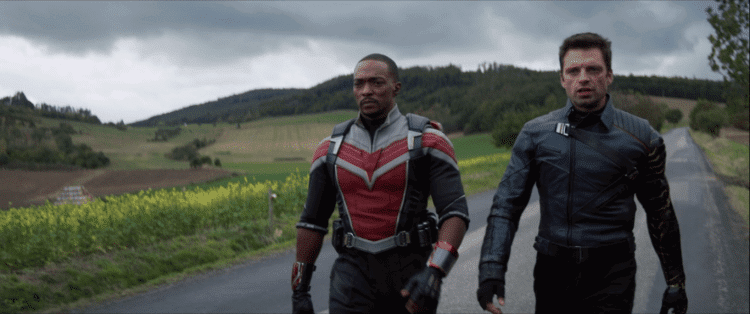
Showrunner Malcolm Spellman’s decision to open “Star-Spangled Man” with a vulnerable John Walker shows his mastery of the material and reveals an advantage of the television format. Audiences sat with the fury of seeing Sam Wilson (Anthony Mackie) screwed over by a racist government for a week, the smug smile of Walker burnt into our brains as well as our Twitter timelines. Spellman could have leaned into our expectations and made Walker consistently come across as unworthy and detestable, but instead he wisely subverts them in the episode’s opening minutes.
John Walker is deeply flawed and problematic as Captain America, but it turns out he’s actually almost cool. Walker is more than the white privilege that made him the government’s choice to pick up the shield. An honest conversation with his wife Olivia and sidekick Lemar reveal a man afraid of failure. The title of Captain America has a deeply personal meaning to him, and he wants to use the power bestowed to him in a way that lives up to the legend that came before. Even though the humility required for the role doesn’t come naturally, this isn’t an ego trip for Walker. He has three Medals of Honor and passed the government’s physical and mental exams with flying colors, but he is still unsure of his ability to be Captain America. Critically, he is unable to define what people’s expectations for Captain America are, and that lack of understanding weighs on him.
A great scene where we get a first glimpse at Walker’s Captain America in action highlights why this character is so compelling. Sam and Bucky (Sebastian Stan) battle eight super-soldiers on a highway and get their butts kicked. Just when it seems all hope is lost, Cap’s shield flies into view, knocking one of the bad guys to the turf. Walker leaps from a helicopter like Steve so often did, a slightly dour version of the signature Captain America theme playing as he joins the fray, and the heroes briefly turn the tide against their super-charged foes. Walker really is just doing his best to fight bad guys and protect people, but it’s impossible not to smile when he gets kicked off the truck at the end of the fight. The inner turmoil audiences feel watching him reflects Sam and Bucky’s thoughts, and both must be grappling with what their inability to let this grudge go says about themselves.
If the show was called John Walker: The Second Avenger, the following scene where Sam and Bucky petulantly refuse to ride in his convoy would cast them as the villains. Every time Walker is on screen, both audiences and our heroes are put in an unwinnable situation: Embrace Walker and therefore allow the dysfunctional system that put him in power continue unchallenged, or root against him and allow the Flag Smashers to kill people on their strange – and poorly conveyed – quest to bring the world back to the blip. Spellman and writer Michael Kastelein have nailed this character and made him one of the most compelling antagonists in the MCU.
John Walker won the episode, but “Star-Spangled Man” thrives when he’s not on screen thanks to great performances from Mackie and Stan. Stan’s portrayal of the emotionally unstable Barnes plays excellently against Mackie’s more grounded performance as Wilson. Their first scene together sets up the antagonistic relationship they carry throughout the episode, with Barnes furiously berating Wilson for turning in the shield. Wilson correctly tells him to cool it – Barnes has no right to tell him how to live – but the sadness over the government’s betrayal pours through his eyes. Wilson doesn’t get to have as much fun this week given the dour mood surrounding his world, but his downheartedness adds tangible sorrow to the episode.
Bucky’s petty anger adds the MCU’s signature levity to action scenes, but his emotional confession about the source of his anger towards Sam is the episode’s emotional climax. By turning in the shield, Sam called Steve’s judgement into question. If Sam isn’t worthy of carrying the shield like Steve believed, then maybe, Bucky figures, he was also wrong about Bucky’s ability to live a normal life. Sebastian Stan’s delivery in the sequence hits just the right note, and Bucky’s existential fear gives his consistent anger new meaning.
Despite snarling for 43 minutes straight, Bucky Barnes isn’t the show’s most pissed off character this week. That honor goes to Isaiah Bradley, a black super soldier who took down Barnes during the Korean War. Bradley brings Falcon’s larger theme of racism back to the forefront and serves as another powerful reminder about the United States’ cruelty towards black people. Sam and Bucky turn to him for information on how the Flag Smashers could have gotten their hands on Abraham Erskine’s super soldier serum, and he tells them with seething rage about his “reward” for being a hero – 30 years in jail and subjection to countless experiments. How the conversation changes Sam’s approach to his work remains to be seen, but the visceral scene is a great pull from comic book lore that calls into question what representing the red, white and blue truly means.
Everyone can agree on a few basic principles that make someone Captain America, but part of what makes Falcon and the Winter Soldier so compelling is that there really isn’t a neat answer to the question. The main characters all have different ideas of what the mantle means, each with their own merits. John Walker says guts make him Captain America, while Bucky sees the title as something Steve can bestow upon others. Sam believes Captain America is something exclusive to Steve Rogers, and his identity as a black man in a country that works against them surely informs that take. Falcon and the Winter Soldier uses each character’s perspective to give viewers a place to start their interrogation of its central question, and, more crucially, challenges them to find their own answer. The show has uncommon depth for a Marvel offering, and it’s currently on track to become one of Marvel Studios’ best work yet.
Falcon and the Winter Soldier Episode 2 Awards and Additional Thoughts
MVP – John Walker: John stole the spotlight from our protagonists this week by subverting audience expectations about who he is. Nothing beats a good rival, and I can’t wait to see more of John and Lemar getting in Sam and Bucky’s way. One thing to watch for: As strong as John is, he was no match for the super soldiers among the Flag Smashers. At some point he’s going to get serumed up himself, and that will reveal his worthiness to don the shield. Steve Rogers famously wasn’t picked to be Captain America because he was a great soldier. He was chosen because he was a good man, and that is a test that John may not pass.
LVP – Karli Morgenthau: The Flag Smashers still don’t make a whole lot of sense, and Karli – their leader – is devoid of personality herself. In the pilot, Torres tells Sam that Flag Smashers are a group that believe the world was better off during the blip, so why are they stealing medical supplies? If you’re power-ranking the most important things that make up Thanos’ ideology, number 1 would be “eliminate half of all life.” Karli and company aren’t doing that, so I’m not sure their plan makes a ton of sense. Her crew reminds me all too much of the group of experimental people Eleven joins in Pittsburgh during season 2 of “Stranger Things.” That’s never good.
Avengers Staring Contest Champ – Natasha Romanoff: Sam and Bucky’s love for a good staring contest got me thinking about who would win amongst the human Avengers. Dr. Strange and Scarlet Witch’s use of magic makes them unbeatable, so they’re banned along with Vision. Of the remaining Avengers, I’d put my money on Nat. She has complete control of her body and the competitiveness needed to win. Hawkeye seems like a strong bet as well, but he can hit aliens between the eyes without looking at them. I don’t think not blinking is an important part of his peerless aim. I’ll take Nat.
Best Age Joke – “The Hobbit”: It wouldn’t be a Captain America story without plenty of age jokes, and Bucky handles them far differently than the happy-go lucky Steve. His indignation at Sam for questioning his knowledge of The Hobbit – which he read in 1937 – brought back memories of the great Steve jokes of yore. I’m still not over how hilarious Rogers’ notebook of things to catch up on was, and I hope Buck has one too.
Who Won the Episode, Sam or Bucky? No doubt about it, Bucky Barnes wins this week. He carries the episode’s emotional climax – that speech in the therapist’s office – and is a joy to watch as he snarls his way through each scene. Bucky is a tragic character, but he’s also hilarious. Sebastian Stan knows how to balance the serious emotional trauma Bucky carries with comedy, and while Bucky Barnes rarely tries to be funny, Stan’s performance adds an appreciated comedic touch.


